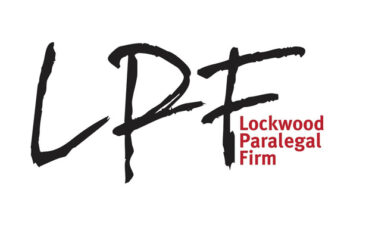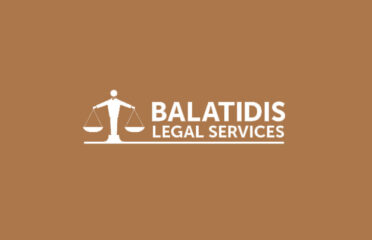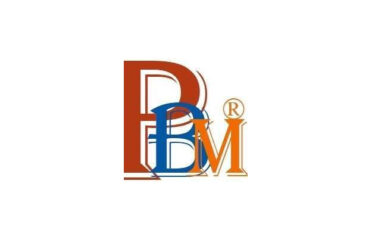What does a Paralegal in Canada do?
Paralegals have become essential players in Canada’s legal system, providing accessible and affordable legal services in specific areas of practice. Unlike in many other countries where paralegals primarily assist lawyers, Canadian paralegals—particularly in Ontario—can offer independent legal services directly to the public. This 1,000-word guide explores the role of paralegals across Canada, their scope of practice, regulatory frameworks, and how they differ from lawyers.
1. What is a Paralegal in Canada?
Paralegals are trained legal professionals who provide specific legal services under defined areas of practice. Their role varies significantly by province:
-
Ontario: Licensed paralegals can independently represent clients in certain legal matters
-
Other Provinces: Paralegals typically work under lawyer supervision
-
Quebec: Paralegals (known as “techniciens juridiques”) have a distinct civil law role
Key Distinction: Paralegals are not lawyers but are increasingly recognized as legal professionals in their own right.
2. Paralegal Regulation in Canada
A. Ontario (Most Extensive Regulation)
-
Governed by the Law Society of Ontario (LSO)
-
Requires:
-
Accredited paralegal education
-
Licensing examinations
-
Continuing professional development
-
Professional liability insurance
-
2023 Stats: ~10,000 licensed paralegals in Ontario
B. Other Provinces
-
British Columbia, Alberta: No independent paralegal practice; work under lawyers
-
Quebec: Chambre des notaires regulates jurudical technicians
-
Federal: Immigration consultants handle some paralegal-type work
3. Scope of Practice: What Paralegals Can Do
A. Ontario Paralegal Services
Licensed paralegals may independently:
-
Represent clients in Small Claims Court (up to $35,000)
-
Handle provincial offenses (e.g., traffic tickets)
-
Advocate before administrative tribunals (WSIB, Landlord Tenant Board)
-
Provide summary legal advice
-
Draft basic legal documents
Prohibited Areas:
-
Family law (except some tribunals)
-
Real estate transactions
-
Wills/estates
-
Criminal law (except minor offenses)
B. Paralegals in Other Provinces
Typically assist with:
-
Legal research
-
Document preparation
-
Client interviews
-
Case management
Supervision Requirement: Must work under a lawyer’s license
4. Education & Licensing Pathways
A. Ontario Requirements
-
Diploma: Approved paralegal program (typically 2 years)
-
Licensing Exam: Barrister & Solicitor-style test
-
Good Character Requirement
-
Insurance: Minimum $1M in coverage
Notable Programs: Seneca, Humber, and Sheridan Colleges
B. Other Provinces
-
No standardized licensing
-
Many complete legal assistant/paralegal diplomas
-
Voluntary certification available (e.g., CPABC in BC)
5. When to Hire a Paralegal vs. Lawyer
Choose a Paralegal For:
-
Traffic ticket defense
-
Minor WSIB appeals
-
Small Claims Court matters
-
Landlord tenant disputes
-
Provincial offenses
Retain a Lawyer For:
-
Criminal charges with jail risk
-
Family law proceedings
-
Complex civil litigation
-
Real estate transactions
-
Estate planning
Cost Comparison: Paralegals typically charge $75-$200/hour vs. $250-$600/hour for lawyers.
6. Paralegal Specializations
Many paralegals focus on specific practice areas:
A. Tribunal Advocacy
-
Social benefits appeals
-
Human rights complaints
-
Immigration/refugee hearings
B. Small Claims
-
Debt collection
-
Contract disputes
-
Property damage claims
C. Provincial Offenses
-
Traffic violations
-
By-law infractions
-
Occupational health & safety matters
7. Recent Developments (2023-2024)
A. Scope Expansion Debates
-
Ontario considering allowing paralegals in uncontested divorces
-
Push for limited family law services
B. Technology Adoption
-
Virtual hearings increasing access
-
Document automation tools
C. Professional Recognition
-
Lobbying for national standards
-
Enhanced ethics requirements
8. Benefits of Using Paralegal Services
-
Cost-Effective: Lower fees than lawyers
-
Accessibility: More practitioners in rural areas
-
Efficiency: Faster resolution for straightforward matters
-
Specialization: Deep knowledge of specific tribunals
Case Study: A 2023 LSO report found paralegals resolved Small Claims matters 40% faster than self-represented litigants.
9. Risks and Limitations
A. Unlicensed Practitioners
-
“Notario” fraud targeting immigrant communities
-
Important to verify licensure (check provincial law society websites)
B. Scope Challenges
-
Some paralegals overstepping permitted services
-
Clients may need to restart cases with lawyers
C. Insurance Coverage
-
Not all paralegals carry errors & omissions insurance
10. The Future of Paralegal Profession
Emerging trends include:
-
National standardization efforts
-
Technology-enabled services (e.g., virtual paralegals)
-
Specialized accreditation (e.g., immigration tribunal specialists)
-
Increased courtroom privileges in some provinces
11. How to Verify a Paralegal’s Credentials
In Ontario:
-
Search the LSO directory
-
Confirm active status
-
Check disciplinary history
Other Provinces:
-
Request confirmation of lawyer supervision
-
Check with provincial law societies
12. Case Study: Paralegal Impact on Access to Justice
A 2022 University of Toronto study found:
-
Paralegal representation increased Small Claims success rates by 35%
-
Reduced tribunal backlogs by 22%
-
Saved clients an average of $4,200 per case vs. lawyer representation
Conclusion
Paralegals have become indispensable to Canada’s legal landscape, particularly in Ontario where they fill critical gaps in access to justice. While their scope remains limited compared to lawyers, their specialized knowledge of tribunals and lower-cost services make them ideal for many common legal issues. As the profession continues to evolve, paralegals will likely take on expanded roles while maintaining their distinct professional identity.
For Canadians facing straightforward legal matters, consulting a licensed paralegal can provide an efficient, affordable alternative to full legal representation—provided the issue falls within their authorized scope of practice. As the legal services market transforms, paralegals stand poised to play an increasingly vital role in democratizing access to justice across the country.


















